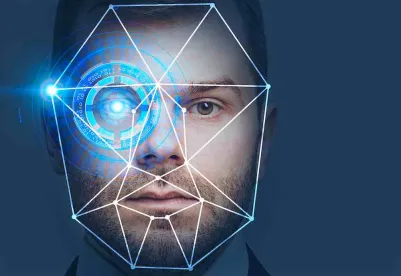The Baltimore City Council recently passed an ordinance, in a vote of 13-2, barring the use of facial recognition technology by city residents, businesses, and most of the city government (excluding the city police department) until December 2022. Council Bill 21-0001 prohibits persons from “obtaining, retaining, accessing, or using certain face surveillance technology or any information obtained from certain face surveillance technology.”
Facial recognition technology has become more popular in recent years, including during the COVID-19 pandemic. As the need arose to screen persons entering a facility for symptoms of the virus, including temperature, thermal cameras, kiosks, and other devices embedded with facial recognition capabilities were put into use, often inadvertently. However, many have objected to the use of this technology in its current form, citing problems with the accuracy of the technology, as summarized in a June 9, 2020 New York Times article, “A Case for Banning Facial Recognition.”
While many localities across the nation have barred the use of facial recognition systems by city police, and other government agencies, such as San Francisco and Oakland, Baltimore is only the second city (following Portland, Oregon), to ban biometric technology use by private residents and businesses. Effective January 1, 2021 the City of Portland banned the use of facial recognition by private entities in any “places of public accommodation” within the boundaries of the city. “Places of public accommodation was broadly defined to include any “place or service offering to the public accommodations, advantages, facilities, or privileges whether in the nature of goods, services, lodgings, amusements, transportation or otherwise.”
Specifically, the Baltimore ordinance prohibits an individual or entity from obtaining, retaining, or using facial surveillance system or any information obtained from a facial surveillance system within the boundaries of Baltimore city. “Facial surveillance system” is defined as any computer software or application that performs face surveillance. Notably, the Baltimore ordinance explicitly excluded from the definition of “facial surveillance system” a biometric security system designed specifically to protect against unauthorized access to a particular location or an electronic device, meaning employers using a biometric security system for employee/visitor access to their facilities would appear to still be permissible under the bill. The ordinance also excludes from its definition of “facial surveillance system” the Maryland Image Repository System (MIRS) used by the Baltimore City Police in criminal investigations.
A person in violation of the law is subject to a fine of not more than $1,000, imprisonment of not more than 12 months, or both fine and imprisonment. Each day that a violation continues is considered a separate offense. The criminalization of the use of facial recognition, is the first of its kind across the United States.
The Baltimore bill also includes a separate section applies only to the Mayor and City Council of Baltimore City, requiring an annual surveillance report by the Director of Baltimore City Information and Technology or any successor entity, in consultation with the Department of Finance to be submitted to the Mayor of Baltimore detailing: 1) each purchase of surveillance technology during the prior fiscal year, disaggregated by the purchasing agency, and 2) an explanation of the use of the surveillance technology. In addition, the report must be posted to the Baltimore City Information and Technology website. Examples of surveillance technology that must be included in the report include: automatic license plate readers, x-ray vans, mobile DNA capture technology and software designed to forecast criminal activity or criminality.
It is important to note, that the bill’s provisions are set to automatically expire December 31, 2022, unless the City Council, after appropriate study, including public hearings and testimonial evidence concludes that such prohibitions and requirements are in the public interest, in which case the law will be extended for an additional 5 years.
The Baltimore ordinance has been met with significant opposition by industry experts, particularly as the ordinance would be the first in the U.S. to criminalize private use of biometric technologies. In a joint letter, the Security Industry Association (SIA), the Consumer Technology Associations (CTA) and the Information Technology and Innovation Foundation (ITIF) and XR Association reject the enactment of the Baltimore ordinance on grounds that it is overly broad and prohibits commercial applications of facial recognition technology that already have widespread public acceptance and provide “beneficial and noncontroversial” services, including for example: increased and customized accessibility for disabled persons, healthcare facilities to verify patient identities while reducing the need for close-proximity interpersonal interactions, banks to enhance consumer security to verify purchases and ATM access, and many more. A similar concern was voiced by Councilmember Issac Schliefer who was one of the two votes opposing the ordinance.
The ordinance now awaits signage by Baltimore Mayor Brandon Scott, and if signed, will become effective 30 days after enactment. In anticipation, of the ordinance’s potential enactment, businesses in the City of Baltimore should begin evaluating whether they are using facial recognition technologies, whether they fall into one of the exceptions in the ordinance, and if not what alternatives they have for verification, security, and other purposes for which the technology was implemented.






 />i
/>i

